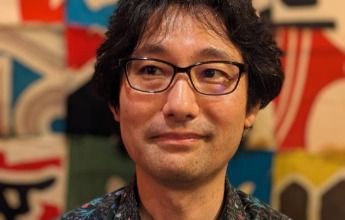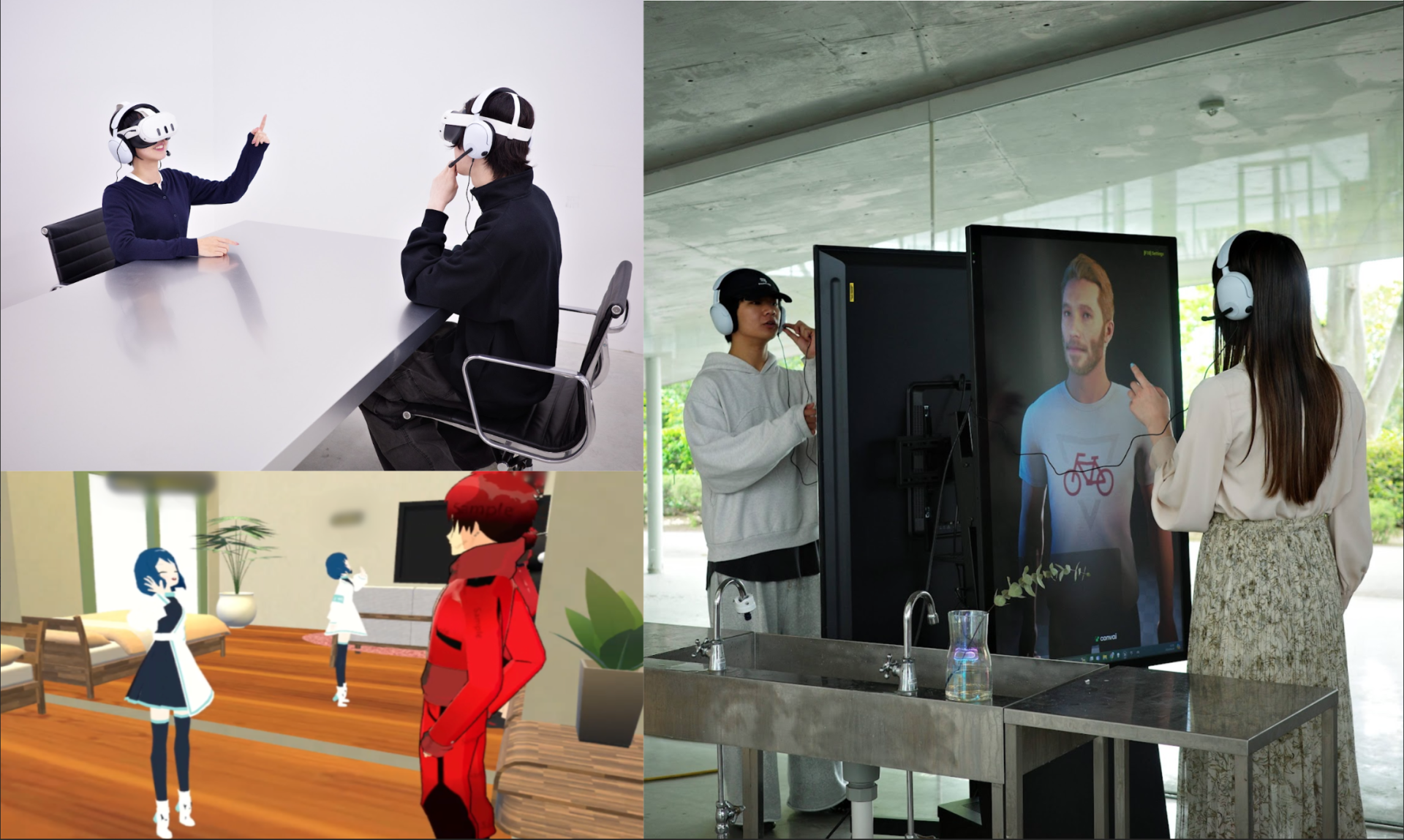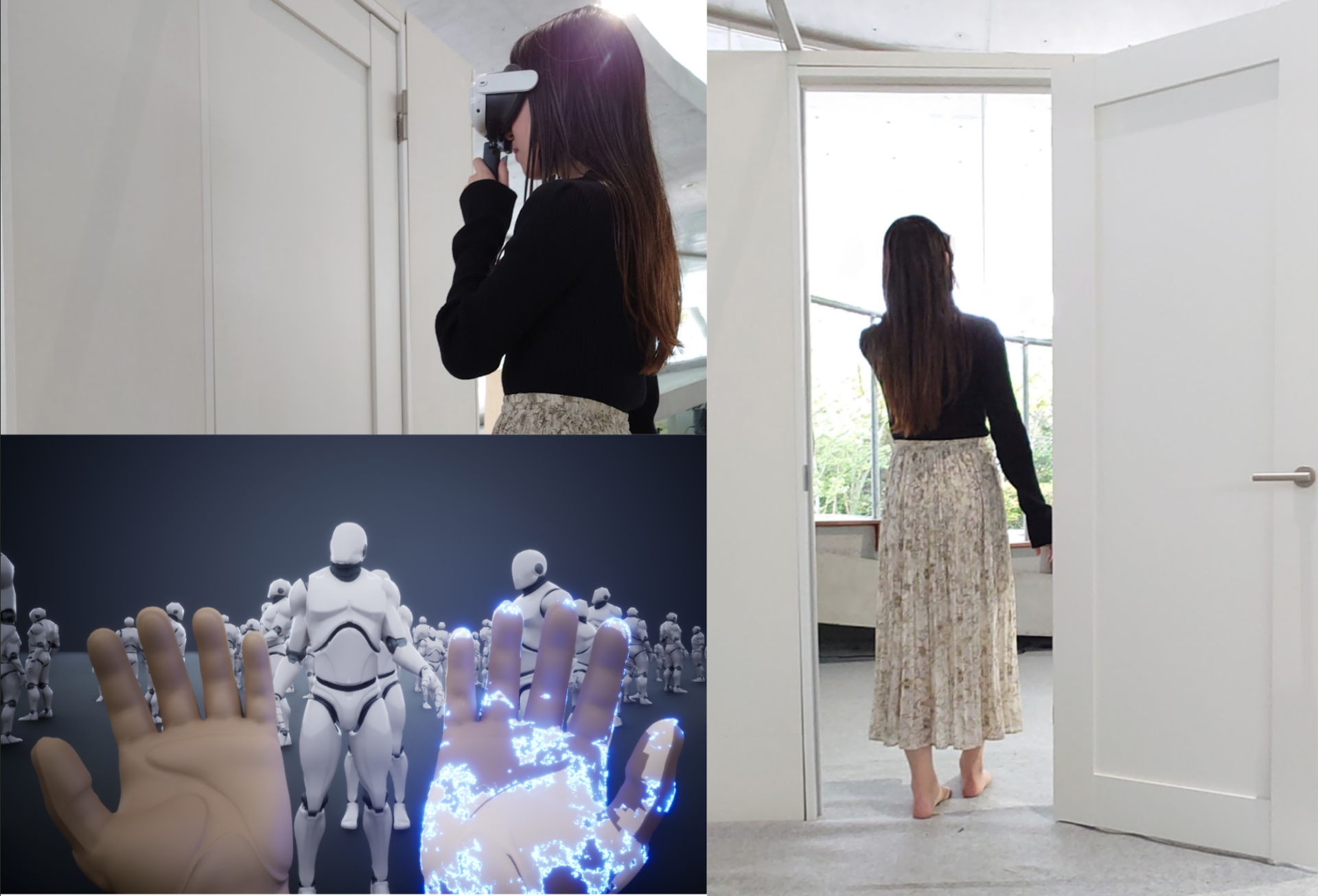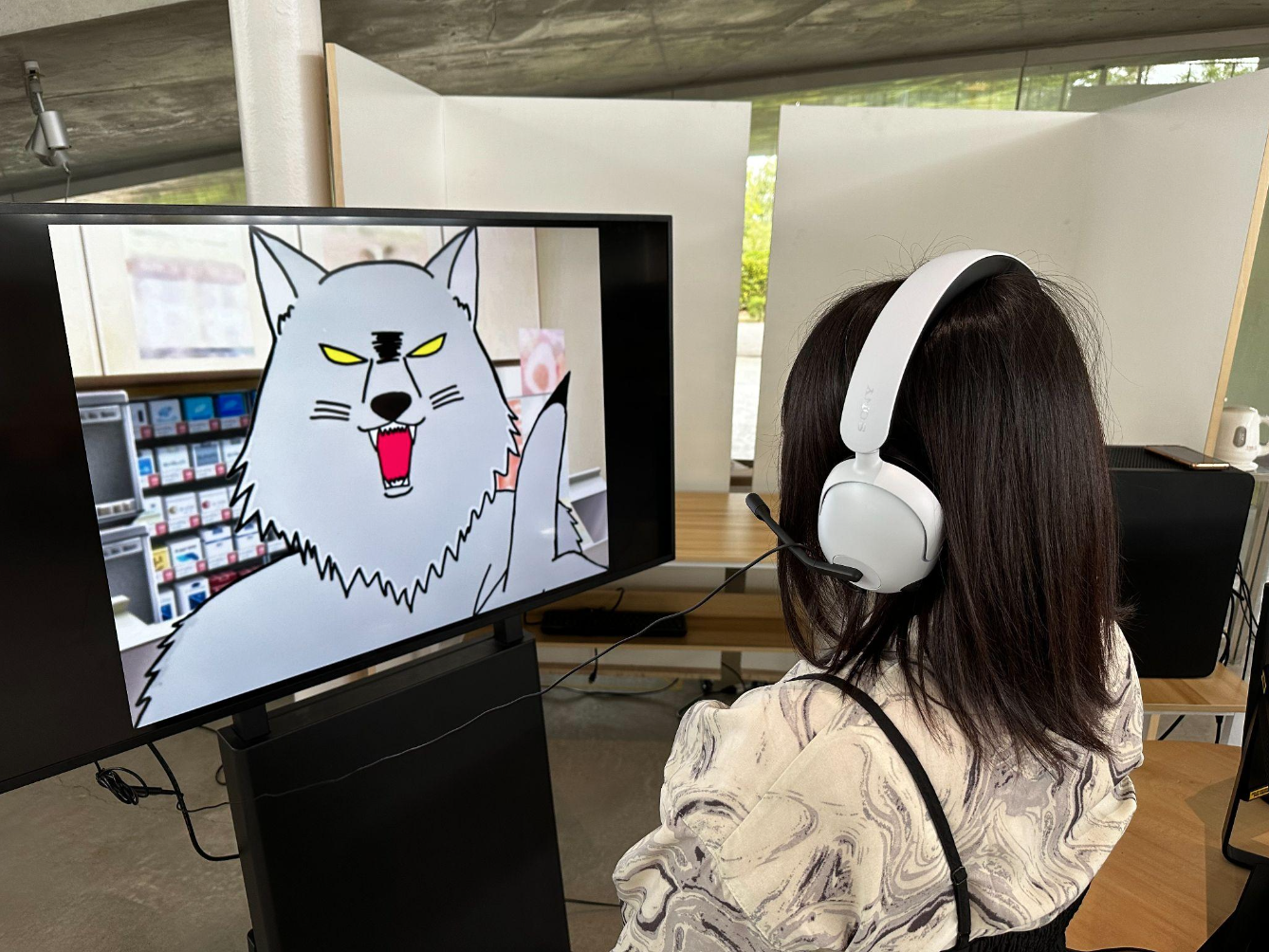”Stance Poker”
The "difference in stance" between people in communication is a cause of stress and distress.
For example, the following problems. People in different positions attack each other using language that includes harassment. Social tendency for minority opinions to be drowned out by the majority, Physical limitations prevent them from communicating with others as they would like.
On the other hand, in the ever-evolving human enhancement technology, avatars are about to develop into a transformative technology that can not only solve these personal stresses and worries, but also turn the social tide.
We have developed a system that combines avatars and AI to control appearance, voice pitch, inflection, and phrasing in real time, allowing for stance manipulation.
Our question is: Can AI be used to solve the problems caused by this difference in stance? Is the solution appropriate?
We aim to determine how extensively visitors accept or reject, and embrace or disregard this technology.The experience of the three pieces of work gives the user a sense that mental stress can be controlled. In addition, the user can see stereotype of himself/herself as determined by the AI based on the user's behavior. This makes the user aware of his/her own stance, and we are convinced that the sharing of individual "stance" among people may direct the flow of the world.

ANDO Hideyuki
He was born in 1974 in Japan, and received Ph. D. in InformationScience and Technology from the University of Tokyo in 2004. he is
associate professor in Bio-Informatics in Osaka University in 2004. and Professor, Department of Art Science, Osaka University of Arts in 2020. Based on the principles of human sensation, perception, and movement, he is engaged in research on VR, AR, XR, and other fields, including information technology and social design for realization of illusory interfaces and wellbeing. He has received the 12th Japan Media Arts Festival Excellence Award, ARS ELECTRONICA PRIX Honorary Mention (2009, 2011), and others.









